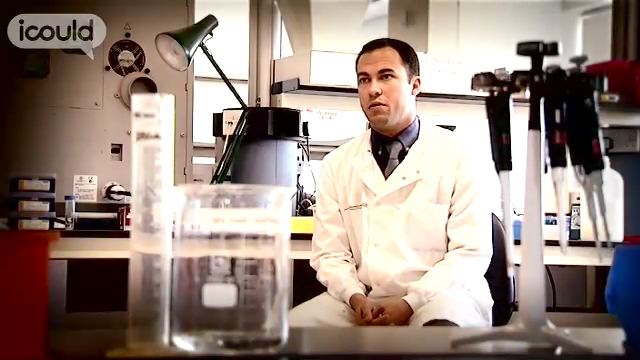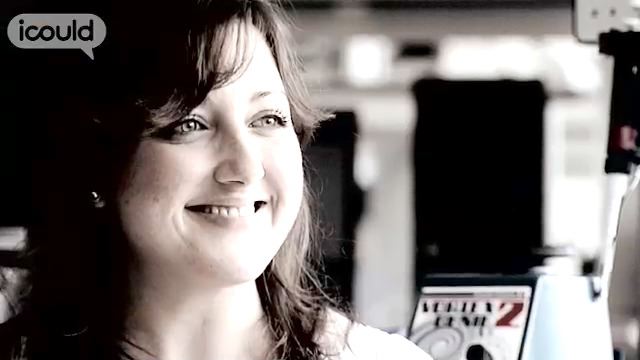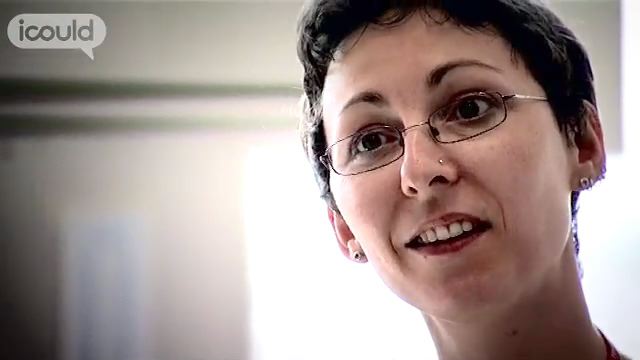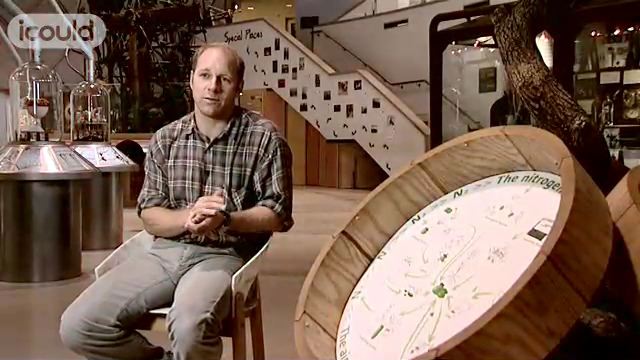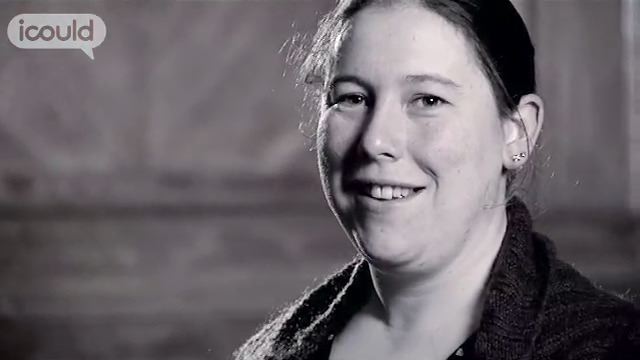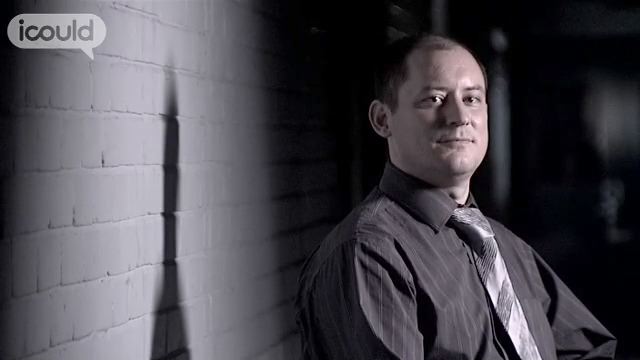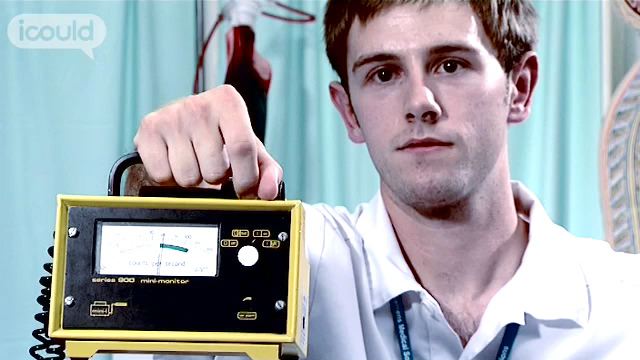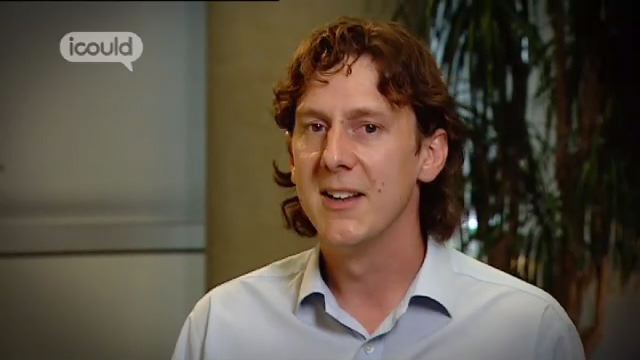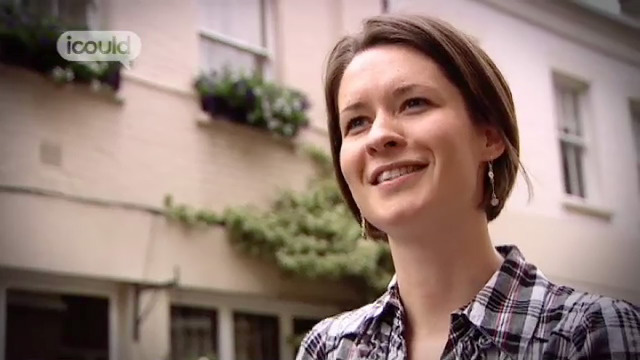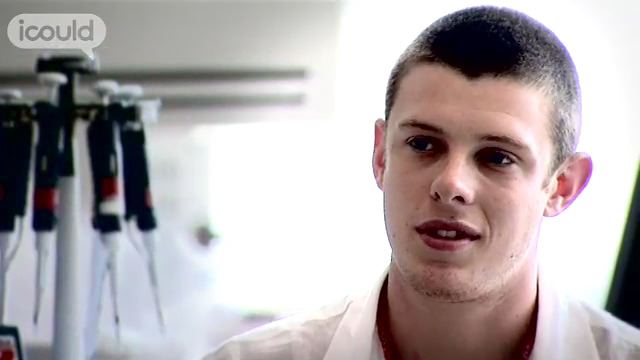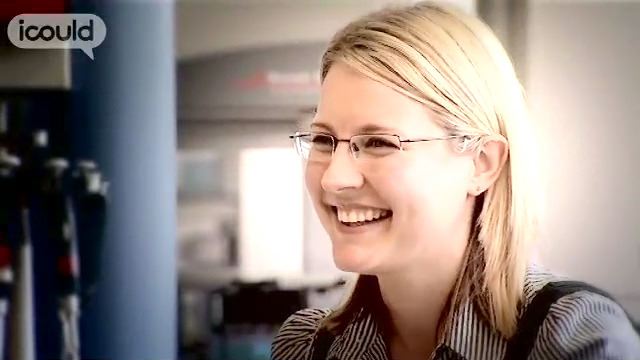Senior Biomedical Scientist
Addenbrookes Hospital
Lucy K
00:00:01 My name’s Lucy K and I’m a Senior Biomedical Scientist and I work in Histopathology. Say if you went to your GP and got a mole removed, it basically comes to Histopathology, we process it so the Pathologist can look at it and say whether it’s cancer or it’s inflammation –
00:01:45 I always think people when they’re young, they’re very lucky if they know what they want from such an early age. From when I was doing my GCSEs to my A-Levels, I never really knew, so it was sort of feeling my way, my mind wasn’t on work and steady at the time. I was thinking about, you know, boyfriends and things like that. I had a couple of years of not knowing what I wanted to do, and I tried Sports Studies, and I tried being a fitness instructor – didn’t like the idea of getting up in front of people and saying copy me, sort of thing. But I really enjoyed the scientific side of it, knowing how the human body works and stuff like that. I thought well OK, well let’s just pick subjects that I’m naturally good at or I like. So that’s when I chose my A-Levels, I chose Art, English Literature and Biology. They don’t go together at all. Once I’d got them I realised, you know, Science is the way forward, this is where I want to be, so I was just flicking through a Sunday paper one morning in bed, and stumbled across a Trainee Biomedical Science position. And basically they would pay for my degree, and I would get a wage at the same time, so I thought Oh yeah, this sounds great, you know. And then I applied and I got the position. I’d work full days at work, and then one day a week I would go to University. I mean from my perspective it was good because I just really wanted the money, I wasn’t too concerned about being at Uni full time and having a whole student life. I mean when I hear stories from people that have gone to Uni full time they said Oh you’ve missed out on the student life and all this sort of stuff, but I’ve still got – I’ve made great friends doing it part time sort of thing, friends that are going to be best friends for the rest of my life, so I don’t regret any of it at all.
00:03:00 I was brought up in a single parent – my mother, she’s absolutely brilliant. She’s always been, you know, I’m happy with whatever you do. I’ve just learnt from the fact that we never had any money, or – I mean she was able to provide for me, but we never had any money as such. I think that’s really ingrained in me that if I want something I really have to work for it and I think – I’ve not – didn’t realise at the time but it really does show now that, you know, I want to get out there and earn money, and I don’t want to struggle like my mother did, you know. I suppose the group of friends that I was with, we’ve all gone down very separate paths. Most of them weren’t as career-minded – or career-orientated – as me, they weren’t thinking about progressing up the ladder so to speak. So I’m probably the only one that’s actually gone and done a degree and got to the stage that I’m at now. I can see now how different we are, but the core, you know, the reasons we were friends in the first place are still there, and they’re still the reasons that we’re friends now, it doesn’t really matter. I think it was – what’s the word – fate, that I came across the advert in the newspaper, you know, saying Trainee Biomedical Scientist.
00:03:23 When I was about seventeen, eighteen I entered a relationship with somebody. It was a bad – a bad point in my life, where I was trying to figure out what to do and what I wanted to do, yet I had this personal – what was going on in my personal life – sort of affecting it quite a lot. At the end of it I still managed to get my A-Levels, and I still managed to get my degree and I kept – and I realised what a strong person I am, or how it was making me – and I was thinking gosh, I can achieve all this and have all this horrible stuff going on in personal life, and I just thought I’m not putting up with it anymore, and it gave me the strength to actually finally get out of that relationship and leave. Something I’m really proud of and – in certain respects I don’t regret what went on, because it made me the person I am today, it’s made me more determined definitely.
00:04:14 Yeah we’ve got a great social life at work – quite a few of us often go to the cinema once a week. It’s quite a large department that we work in, so there’s people leaving and joining us, it’s very sort of dynamic. Once somebody joins we’ll all go out, make sure they get involved, and they feel welcome basically. And when somebody leaves we’ll do the same. Somebody the other week left, we’d all put money in for a gift, and they ended up going home with a Nintendo Wii. (LAUGHS)
00:04:42 I’m definitely happy with what I do, and I can see a career path set out for me. In retrospect I think I’ve gone into a really interesting field.
00:04:52 ENDS
Lucy K is a Senior Biomedical Scientist, “I was flicking through a Sunday paper one morning in bed, and stumbled acrooss a Trainee Biomedical Science position. And basically they would pay for my degree and I would get a wage at the same time.” She describes her university experience and how she feels her experience as a part-time student was just as powerful as full-time.
More information about Biological scientists
The UK average salary is £29,813
There are 37.5 hours in the average working week
The UK workforce is 47% female and 53% male
Future employment
- Studies the physical form, structure, composition and function of living organisms
- Researches the effects of internal and external environmental factors on the life processes and other functions of living organisms
- Observes the structure of communities of organisms in the laboratory and in their natural environment
- Advises farmers, medical staff and others, on the nature of field crops, livestock and produce and on the treatment and prevention of disease
- Monitors the distribution, presence and behaviour of plants, animals and aquatic life, and performs other scientific tasks related to conservation not performed by Job holders in MINOR GROUP 215: Conservation and Environment Professionals
